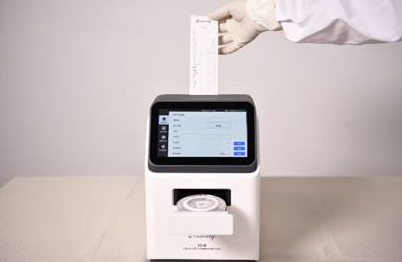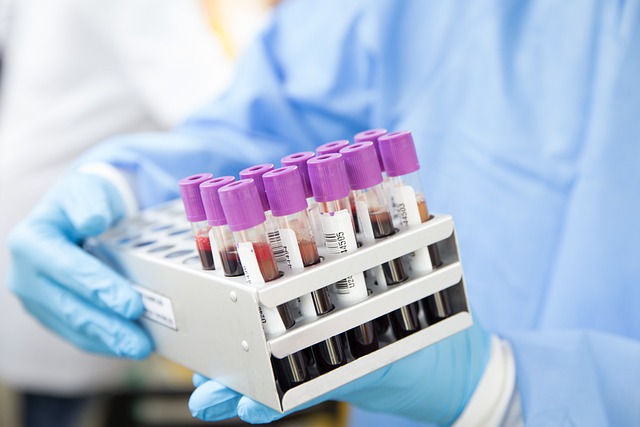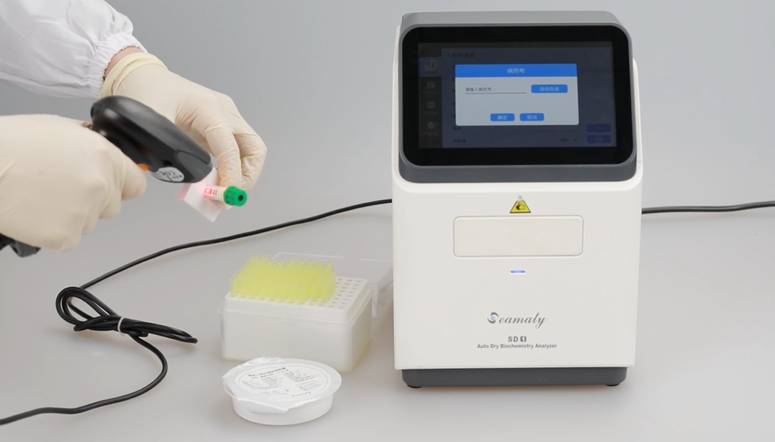release time:2022-07-07 15:15:08
The fully automatic biochemistry analyzer is a compact and easy to operate machine that can quickly analyze a variety of blood samples. The machine is capable of performing a complete analysis in just minutes, and the results are highly accurate. The machine is also very user-friendly, and the operator does not need any special training to use it. In addition, the machine is very reliable and can be used for many years with proper maintenance. Overall, the fully automatic biochemistry analyzer is an excellent choice for any laboratory that needs to quickly and accurately analyze blood samples.
4. It has a large color touchscreen display
The large color touchscreen display is one of the best features of the fully automatic biochemistry analyzer. The display makes it easy to see the results of the tests, and it also allows you to easily change the settings if necessary. The fully automatic biochemistry analyzer is a great tool for any laboratory, and the large color touchscreen display is one of the reasons why.
5. It measures biochemical substances using immunoassay technology
A fully automatic biochemistry analyzer is a machine that can measure biochemical substances in a sample using immunoassay technology. This type of technology is based on the principle of antibody-antigen interactions. Antibodies will bind to specific antigens in a sample, and the amount of binding can be measured to determine the concentration of the substance. Fully automatic biochemistry analyzers are able to perform these measurements quickly and accurately, making them a valuable tool in the diagnosis of disease.
6. The analyzer can be used to test for a variety of conditions, including diabetes, heart disease, and cancer
The fully automatic biochemistry analyzer is a versatile tool that can be used to test for a variety of conditions. Perhaps most notably, it can be used to test for diabetes, heart disease, and cancer. The machine is easy to operate, and it provides accurate results in a short amount of time. Best of all, the machine is fully automated, meaning that it can be used without the need for constant supervision. This makes it an ideal tool for busy medical practices. In sum, the fully automatic biochemistry analyzer is a valuable asset for any medical practice.
7. Price for Biochemistry Analyzers
Fully automatic biochemistry analyzers are available in different models, with varying features and price ranges. Some of the best devices include the Roche Cobas c501, Abbott Architect c8000, Siemens Dimension RxL Max, and Beckman Coulter DXC 600. These devices offer a wide range of features and are able to perform a large number of tests with high accuracy.
The price of a fully automatic biochemistry analyzer depends on the model, features, and brand. Generally, these devices range from $30,000 to $100,000.

When purchasing a fully automatic biochemistry analyzer, it is important to consider the intended use, budget and desired features. It is also important to read reviews and compare products before making a final decision.
Risks associated with using a Chemistry Analyzer include infection, allergic reactions, and false positives. It is important to follow all instructions carefully to avoid these risks.
Conclusion
The fully automatic biochemistry analyzer is a new device that can quickly and accurately measure the levels of various biochemical substances in blood, urine, or other body fluids. It is designed for use by hospitals, clinics, and other medical facilities. The analyzer is compact and easy to operate. It has a large color touchscreen display. It measures biochemical substances using immunoassay technology. The analyzer can be used to test for a variety of conditions, including diabetes, heart disease, and cancer. For best results get your biochemistry analyzer today.

2022-05-31
Point⁃of⁃Care Testing (POCT) is a test that is performed at the site of sampling and uses a portable analytical instrument and accompanying reagents to obtain rapid results. The earliest reported use of POCT dates back to a papyrus document from 1550 BC. This document describes the use of ants by Egyptian physicians to determine if a patient has diabetes.

2022-05-25
According to statistics, global in vitro diagnostics is growing at a rate of 4.4% to 5.7% per year. The in vitro diagnostics market is predicted to exceed $87 billion by 2024.

2021-09-15
What are the tips for routine maintenance of fully automated biochemistry analyzers? The daily maintenance of medical equipment is related to the normal operation of the instrument and the accuracy of the test results.